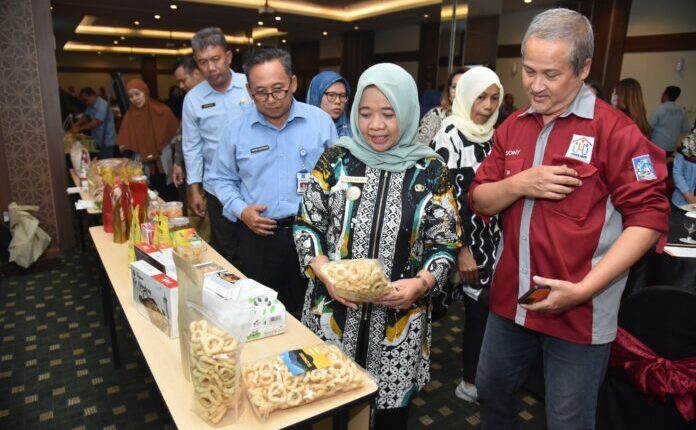Business Matching Becomes One of the Keys to Strengthening MSMEs in the Prabowo-Gibran Era
Jakarta – In an effort to accelerate the improvement of the national economy, Business Matching has proven to be one of the keys to strengthening Micro, Small, and Medium Enterprises (MSMEs). Through this activity, MSMEs are given the opportunity to collaborate with various parties, ranging from large companies, investors, to financial institutions. This opens up new opportunities for MSMEs to grow more rapidly in local and global markets.
Deputy Minister of Micro, Small, and Medium Enterprises (Wamen UMKM), Helvi Moraza, said that business matching can be an important catalyst in encouraging cross-sector synergy to strengthen UMKM.
“Through this synergy, we can accelerate the growth of UMKM while ensuring that they are ready to compete in the international market,” said Helvi.
UMKM has been the backbone of the national economy. Its contribution to GDP is 60.5 percent with a workforce absorption of up to 96.9 percent. However, UMKM participation is still low in the Global Supply Chain.
“Our UMKM is not yet competitive enough to penetrate the global market. On the other hand, the majority of UMKM are also still not connected to the industrial supply chain,” continued Helvi.
Meanwhile,to encourage UMKM to expand their market abroad, the Ministry of UMKM collaborated with the Ministry of Trade to design the UMKM Bisa Ekspor program. According to Helvi, cross-sector collaboration is the key to opening up wider opportunities, including market access, mentoring, training, and technology adoption.
“The Ministry of SMEs also continues to strive to help SMEs upgrade with the Inabuyer program to connect SMEs with large corporations and BUMN, as well as the SME campus program to encourage SMEs to go digital, go export, and go standard,” said Helvi.
Meanwhile, the Minister of Trade (Mendag), Budi Santoso, said that the Ministry of Trade ensures that starting in January 2025 there will be business matching for SMEs. The activity, which is planned to be carried out routinely, will later bring together SME actors with potential partners or buyers to work together, so that SME product export activities occur.
“We will adjust, for example, when can SMEs fostered by certain banks do business matching for certain products to India (for example). Well, later our Trade Attaché (Atdag) and Indonesian Trade Promotion Center (ITPC) in India will listen to the presentation of SME products. Then Atdag and ITPC will look for buyers,” said Budi.
Budi assessed that the business matching activity must be carried out routinely, at least twice by each representative of Atdag and ITPC. So it is expected that exports of MSME products can increase, as well as the performance of Atdag and ITPC can be optimal in promoting Indonesian MSME products.
“At least, one representative (atdag or ITPC) twice. Don’t do too much business matching, later you won’t be able to work,” said Budi.
Through collaboration in business matching, MSMEs have a greater opportunity to achieve their maximum potential. This is a concrete step in creating a stronger economic ecosystem and can provide direct benefits to the Indonesian people. (Ist/Lsn)
